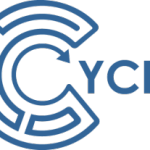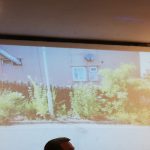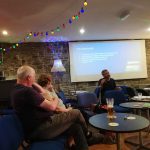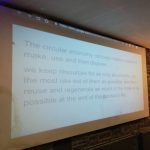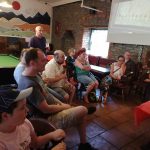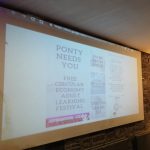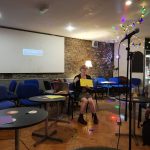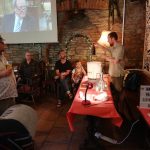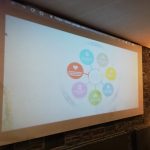Integrating STEAM and Computational Thinking Development by using Robotics and Physical Devices (Acronym: RoboSTEAM) is a new project funded under the European Erasmus+-program, Key Action ‘Cooperation for innovation and the exchange of good practices’: Strategic partnerships for school innovation.
The project aims to integrate what is called STEM, explicitly adding the subject of arts – towards STEAM: Science Technology, Engineering, Arts and Mathematics. Physical computing environments for school use (pre-university level) are identified in the countries. At KIT’s Institute of Vocational and general Education we will look at more playful, visual and art-based processes for teaching and learning about computational modeling and thinking by bridging technology, art and design processes. For example, haptic materials such as smart textile and wearable projects will be developed by pupils supported by students of engineering pedagogy.
The project will define a methodology and a set of tools that will help learners to develop computational thinking by using/programming PD&R in pre-university education stages. The project will also improve teacher education, providing them with a framework for easy STEAM integration in different educational contexts by providing guidelines for good practices and lessons learned adapted to different contexts. All these products will have been tested in different countries and cross-validated in different higher education institutions.
RoboSTEAM’s innovation is based on the following items: It defines a framework and a set of instruments for integrating STEAM and develop computational thinking in a replicable, effective and measurable way. The framework is based on a Challenge Based Learning approach which implies dealing with general and social problems. It applies Policy Development and Research (PD&R) to do this, which aims to attract students to study scientific disciplines.
Co-ordinator is Miguel Ángel Conde González, PhD,
Universidad de León, Área de Arquitectura y Tecnología de Computadores
Dpto. Ingenierías Mecánica, Informática y Aeroespacial.
Escuela de Ingenierías Industrial e Informática, ES
Partners are
• University of Eastern Finland, School of Computing, KUOPIO, Finland
• Karlsruhe Institute of Technology, Institute of Vocational and General Education KIT
• University of Salamanca
• Instituto Polytecnico de Braganca, Pt
• IES ERAS De ReNUEVA, ES
• Colegio Internato dos Carvvalhos, Pt







